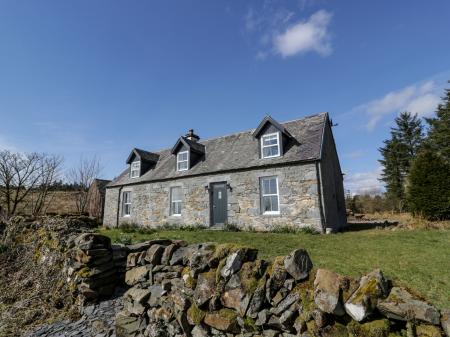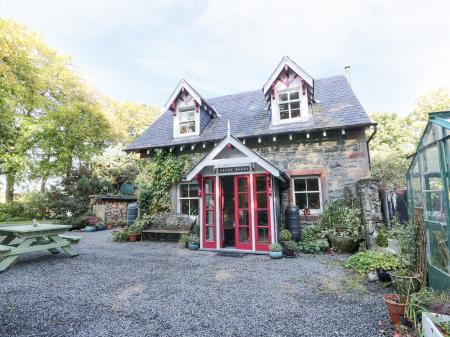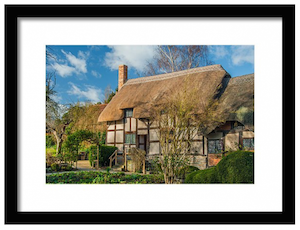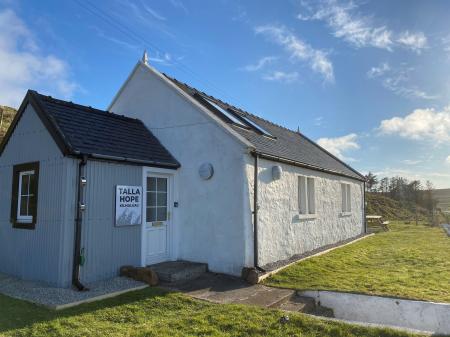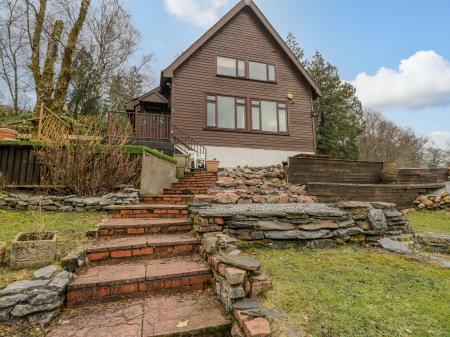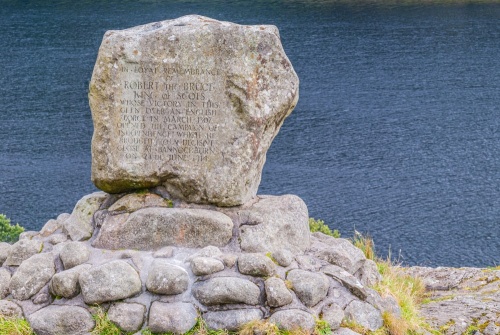
Tradition says that Bruce rested against the stone after the battle, a fact commemorated by an inscription which seems to take up most of the boulder's surface.
Though it was only a minor skirmish in terms of the numbers involved, the Battle of Trool was a turning point in the conflict that culminated with Bruce's decisive victory at Bannockburn.
After heavy defeats at Methven and Dalry, Bruce emerged from hiding in Galloway, establishing a camp at the head of Glen Trool. The English commander, Aymer de Valence, sent a force of horsemen to advance on the Scottish camp, but Bruce used the narrowness of the valley and his knowledge of the terrain to put the English to flight, apparently without any losses of his own save some horses.
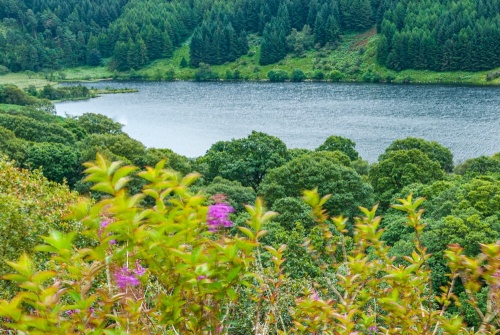
In some ways, the skirmish at Trool does not deserve to be called a battle; indeed, English accounts mention it only in passing. But Bruce emerged with a propaganda victory, and the English were left with a bit of military egg on their faces. Bruce went on to still more credit the following month at the Battle of Loudon Hill, which really did help pave the way for his eventual triumph at Bannockburn.
Nowadays Bruce's Stone is the traditional starting place for hikers keen to conquer Merrick, the tallest mountain in southern Scotland at 2764 feet.
The glen is a lovely place, a wooded haven of great natural beauty in the midst of the Forest Park, and it seems difficult to imagine a conflict in this peaceful spot!
Don't confuse this Bruce's Stone with another stone of the same name near Clatteringshaws, which again marks the spot where Bruce is said to have rested after a skirmish with the English.
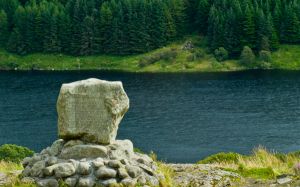
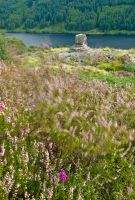
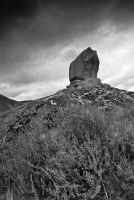
 We've 'tagged' this attraction information to help you find related historic attractions and learn more about major time periods mentioned.
We've 'tagged' this attraction information to help you find related historic attractions and learn more about major time periods mentioned.
